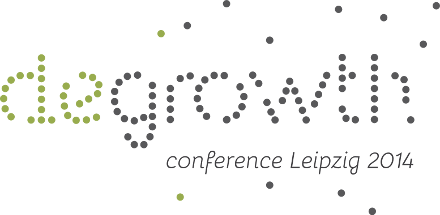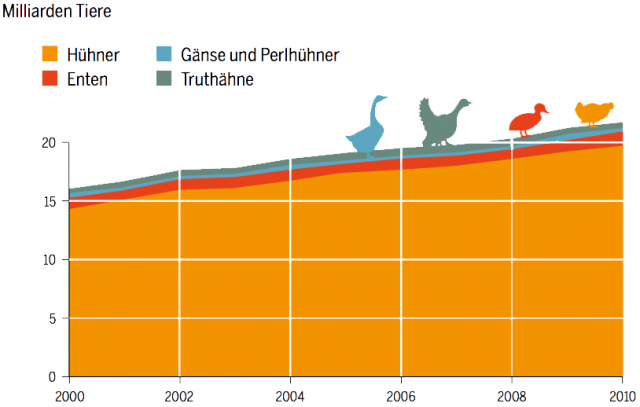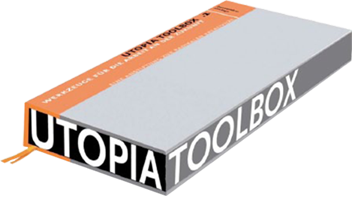I don’t find Russell Brand particularly sympathetic, nor i think he is funny, but this one is good. He is summarizing drastically a few issues of about the power of business and media, and how they are influencing public opinion, managing to marginalize alternative ideas and action.
I have no idea how Russell Brand’s book is. But the topics he touches are relevant. And if he really is able to communicate them to “ordinary people”, then i even agree with his sense of humor, which does not work for me.
Noam Chomsky does not give us much hope about the future of human civilization, in his article “ISIS and Our Times“. If he is right – and i fear he is – we should prepare for more than just a crisis. How to prepare (my guess):
- learn self-sufficiency
- learn to get organized (with peers, not depend on institutions, companies and other big structures)
- learn self-defense (not only physically)
- learn to hack (not only code)
in a short: learn to get organized in networked communities, which are independent of big structures
or at least intelligently: Talks, Debates and Action at the degrowth conference 2014 in Leipzig.

The focus of the 2014 conference is on concrete steps towards a society beyond the imperative of growth. The conference will give room for scientific debates, exchange between activists and economic pioneers as well as artistic approaches to the subject. Both scientific insights and concrete projects and policies will be presented, experimented with and discussed. It is part of an international cycle of events: so far, there have been conferences on degrowth in Paris 2008, in Barcelona 2010 and in Venice and Montreal 2012.
… a growth-based economic and social system cannot have a future … read more.
The program is rich and covers many dimensions of the complex topic with several facets. The schedule on the web site gains access to the intertwingled papers and events of divers formats = a nice hypertext with a not-so-nice user interface and visual presentation.
via designdesaster
A concise Joseph J. Atick discourse on the power and risk brought by the combination of face recognition, the ubiquity of point-and-shot camera (mobile phones), the availability of identified faces on the web together with public information on everybody:
Atick must know, he “had co-founded one of the original facial recognition companies, Visionics Corporation. Over the years, Dr. Atick co-founded and managed several companies focused on technology transfer and development, and has served as a technical advisor to many high-tech enterprises and organizations, including NATO” says his profile on forbes.

Für eingefleischte Vegetarier nicht neues – gutes Futter, um sich bei Fleischfreunden beliebt zu machen:
DER FLEISCHATLAS
Daten und Fakten über Tiere als Nahrungsmittel der Monde Diplomatique zum download als PDF.

Das Transatlantic-Trade-and-Investment-Partnership-Abkommen, TTIP, ist kein klassisches Freihandelsabkommen. Es geht nicht um die Abschaffung von Zöllen und Handelsschranken, weil es die zwischen Europa und den USA kaum noch gibt. Ziel ist vielmehr der Abbau von so genannten „nicht-tarifären Handelshemmnissen“. Als Handelshemmnis können die Vertragspartner alles definieren: Verbraucherschutz, Kennzeichnungspflicht, Datenschutz, Arbeitnehmerrechte.
Sofern das Recht dem Handel hinderlich ist (oder auch nur dem Interesse wichtiger Großkonzerne einer Seite widerspricht) soll es „harmonisiert“ werden. Das heißt praktisch meist, dass Standards gesenkt werden. Und zwar durch einen Vertrag zwischen Staaten oder Staatenbünden wie der EU. Die Vertragsverhandlungen finden ohne Transparenz, ohne Debatte und Beteiligung der demokratisch gewählten Parlamente statt. Die Parlamente können am Schluss nur noch Ja oder Nein zu dem ganzen Vertrag sagen. …
aus der Kampagne auf campact.de | Clicktivismus > Appel unterzeichnen!

Posted in Aufklärung / Information, Buch, Gesellschaft, Gruppierung / Organisation, Konsum, Kultur, Kunst, Leben, Wirtschaft, Zukunft on September 22nd, 2013 No Comments »

provides and creates tools for a consciuos designing of our future which will be particularly challenging, and demanding creative processes beyond familiar dimensions.
It is about desiging the space between people: the political, social, artistic, scientific, economic,
philosophical, spiritual, practical space.
It is an artproject by people of various professional fields who like to work together in projects, grow in scale, scope and capacity through collaborative interdisciplinary work. Their common basis is an open
definition of creativity which does not exclude any field of work. These collectives share, at their core, an
idea and a belief that creativity is our single most valuable resource. The only resource providing
solutions for the dramatic global chaos we face.
Art is critique on a mechanistic way of thinking.
found on utopiatoolbox.org
They just published a UTOPIA TOOLBOX book [mainly in German language]. You can take a look over there.
via designdisaster.unibz.it
Vom 28. September bis 6. Oktober läuft in Köln das Ökorausch-Festival, das ebenfalls Design und Nachhaltigkeit verbindet.
Ökorausch klingt in meinen Ohren nicht eben berauschend, aber in der Ausstellung sind interessante Projekte zu entdecken, z.b. das fairphone.
Auf dem Symposium spricht u.a. Christa Liedtke vom Wuppertal Institut, aber keine Designer …
… dafür gibt es ein über die Stadt verteiltes Programm für Groß und Klein ;-)
via By Design or by Disaster
MitbürgerInnen,
am Sonntag sind schon wieder Wahlen, also hörts auf mit dem Rumblödeln und nehmts es diesmal ernst.
Letzte Woche hat gezeigt was da alles passieren kann!
Hinterher könnt Ihr Schnappschildkröten in Irsee suchen gehen…..
Hirsch – Ausländermaut auch für Fussgänger!
Klaus (Wummy) Thomas, Betreiber des “Hirsch” in Lindenberg/Buchloe im Ostallgäu bei Landsberg (fb.com/hirschlindenberg)
gefunden in tuncay’s triptown-newsletter, ausgabe 20.9.2016, Betreff “Wiesn hab ich ganz vergessn, aber Wurscht…”
The doomy atmosphere revokes my youth in the 80ies. Also the discourse is not completely contemporary, seems almost outworn — not considering web phenomena/critic and current approaches to eco-social/political transformation — but i think it is still relevant. In terms of style and discourse Adam Curtis and Massive Attack seems to be the perfect fit. Now that they work together i wonder why they didn’t find each other earlier. More on their current work: Guardian, BBC.
I was reading about it yesterday on the Guardian in an article posted by the Adam Curtis himself. But today that page was removed, while yesterday it was even featured on the start page of the Guardian. As if it was still open in my browser, i saved it as a PDF.
More documentaries by Adam Curtis on thoughtmaybe.com — seems to be an excellent video platform for independent information (“Self-hosted, Self-funded, Self-directed, independent, autonomous”)
All this well-connects to the current affair around Edward Snowden. Listen to the remarkable interview he gave in Hong Kong.




